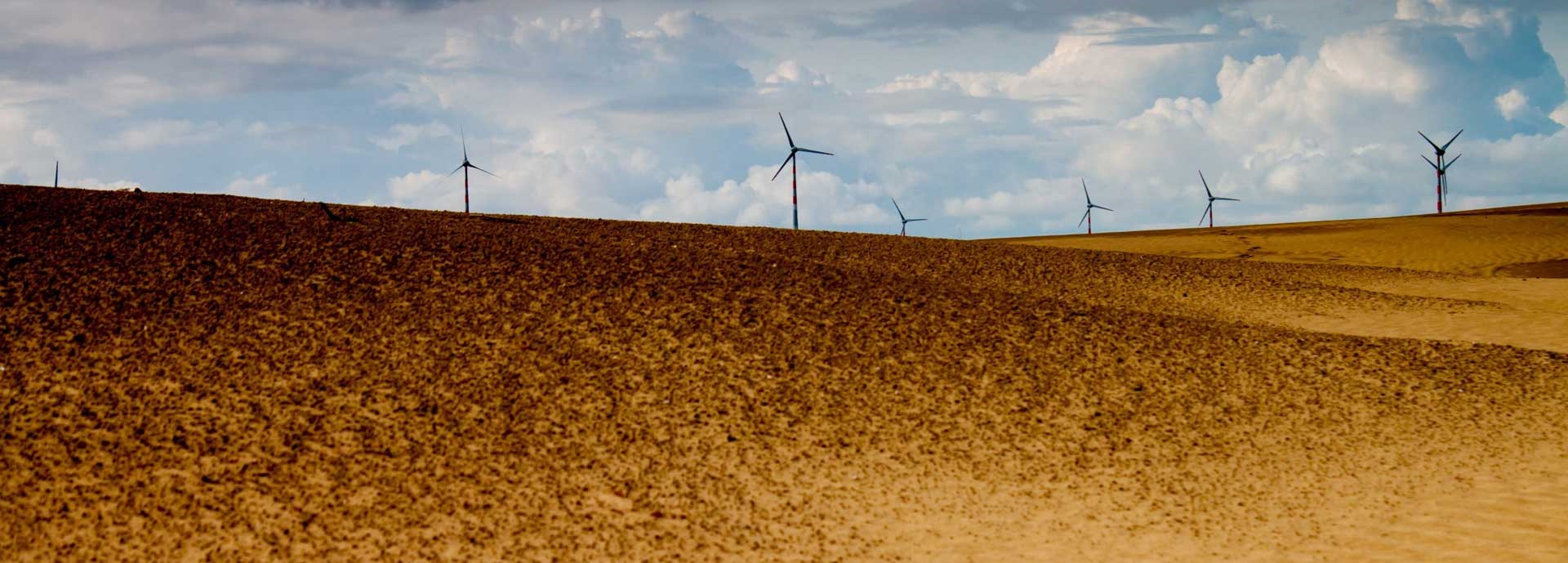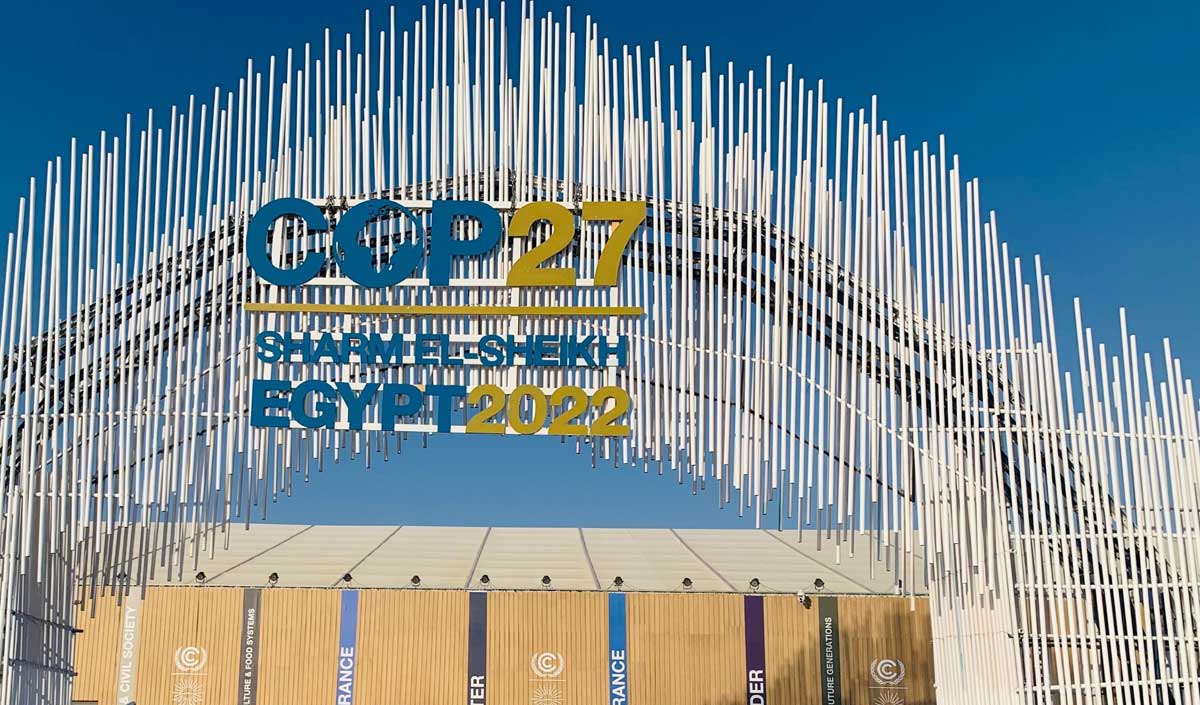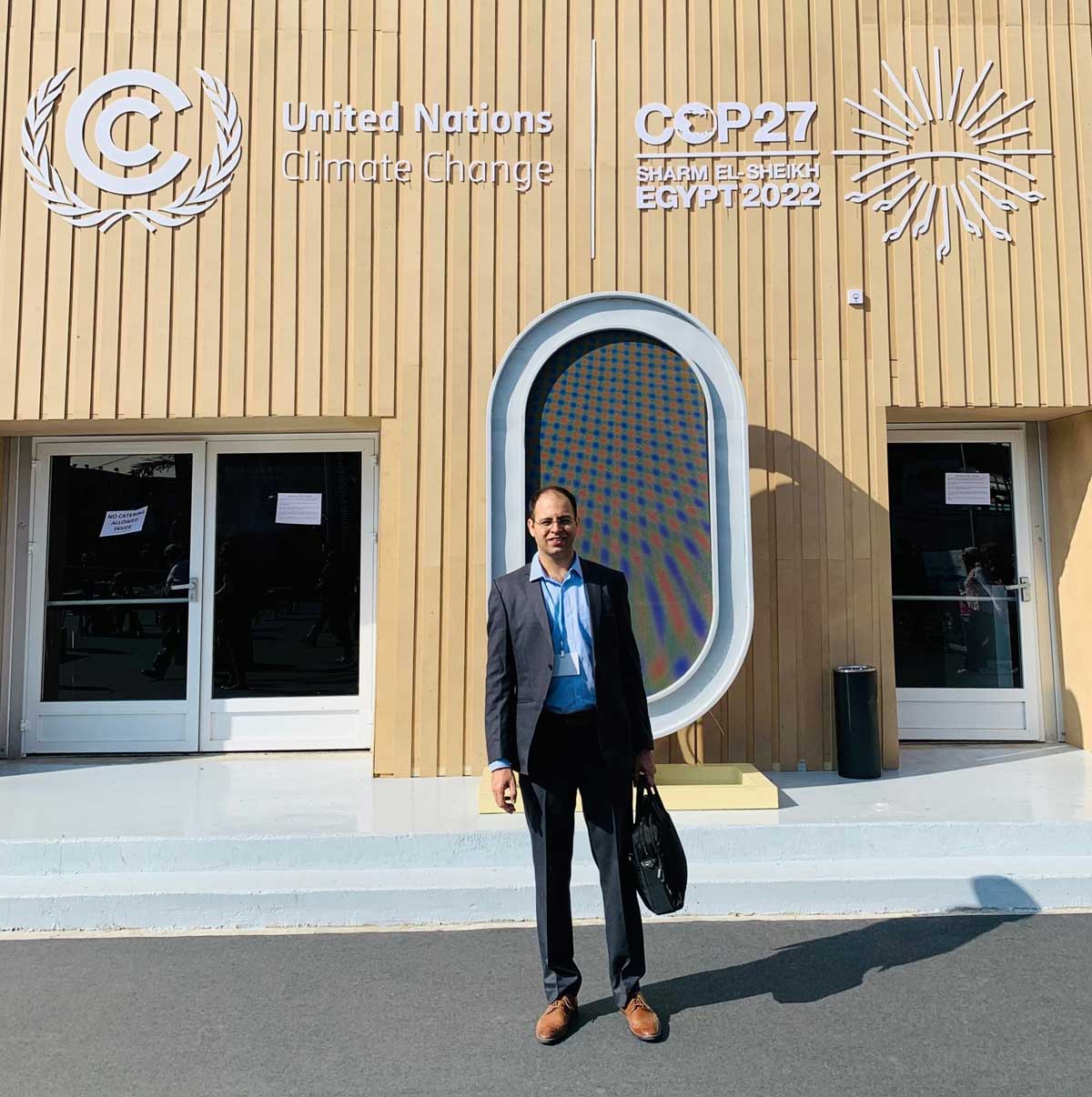

The Conference of Parties (COP) is the global meeting point where leaders and countries work to limit global temperature rises and other impacts associated with climate change. Decisions are made on a wide range of issues related to climate change, including the development of new international agreements, the establishment of financial mechanisms to support developing countries, and the adoption of guidelines and rules for implementation. The latest conference, COP27, took place over two weeks in Sharm El Sheikh, Egypt, with about 190 countries and 92 heads of state in attendance.
Decarbonisation and net zero goals are at the centre of energy discussions at COP. Many targets have been set and now concrete next steps are needed. It is important for us as a company to contribute to these discussions, to bring our expertise and advice to bear on our path forward.
A few defeats, but also important victories
The world after COP26 has dramatically changed. The effects of war on the availability of energy supply and prices, growing inflation, supply chain crunch and looming recession have forced near-term compromises on established priorities globally, especially ones linked to climate change. COP27, which was meant to be an ‘implementation COP’ was happening against this backdrop.
In spite of these events, the expectation from this year’s climate meet was to see concrete outcomes on the phase-out of unabated fossil fuels and aggressive mitigation plans that are consistent with the 1.5-degree goals. However, these expectations did not receive support from key stakeholders and remained out of reach. Instead, what came through clearly was a renewed commitment to keep up the pressure to achieve the 1.5-degree goal.
A 100% renewable energy future is possible with existing technologies – but we need commitment from our leaders.
The outcomes from this year’s COP were more directional in nature. For instance, a major breakthrough was that world leaders agreed on a loss and damage fund for the first time. This is clearly a huge step forward as the fund will help mitigate the harm developing nations suffer from climate change though much remains to be resolved. We also saw a growing chorus on the phase-down of unabated fossil fuels. Moreover, global cooperation on decarbonisation is gathering pace: $20 billion support for coal phase-out in Indonesia in addition to an already pledged $8.5 billion support for a just energy transition in South Africa.
The cooperation on decarbonisation initiatives are particularly important for Wärtsilä, as we have been working long and hard to analyse optimal pathways for countries to achieve a 100% renewable energy future. For some examples, read our reports for Africa, Southeast Asia and Europe.

Five steps to the future
Our power system modelling has showed that countries all over the world have a similar pathway towards net-zero energy. To put it simply, our concept of the energy transition follows these steps:
- Add renewable generation like solar and wind.
- Add flexibility and balancing to manage the intermittent renewables. This is done with fast-starting engines, energy storage and energy system management platforms.
- Phase-out coal and end other inflexible generation.
- Convert existing engines to run on sustainable fuels like green hydrogen.
- Phase out the last of the fossil fuels.
Be optimistic!
Next November and December, COP28 will be hosted in the UAE. This COP is particularly significant because it marks the end of the first Global Stocktake, which began at COP26 in Glasgow, meaning that the collective progress made under the Paris Agreement will be assessed and areas for additional action and support are identified.
A 100% renewable energy future is possible with existing technologies – but we need commitment from our leaders. We need to double down on what we have promised and implement our plans. It is essential that we take a practical look at the decarbonisation journey to ensure an orderly transition while keeping the Paris Agreement’s 1.5-degree goal alive. We are optimistic for our future and the role Wärtsilä will play.

Sandeep Sarin is a Senior Business Manager in Wärtsilä Energy’s Business Development team. With over 11 years of experience in the energy sector, public policy, consulting and market development & strategy he now leads our power system modelling projects.
Did you like this? Subscribe to Insights updates!
Once every six weeks, you will get the top picks – the latest and the greatest pieces – from this Insights channel by email.




